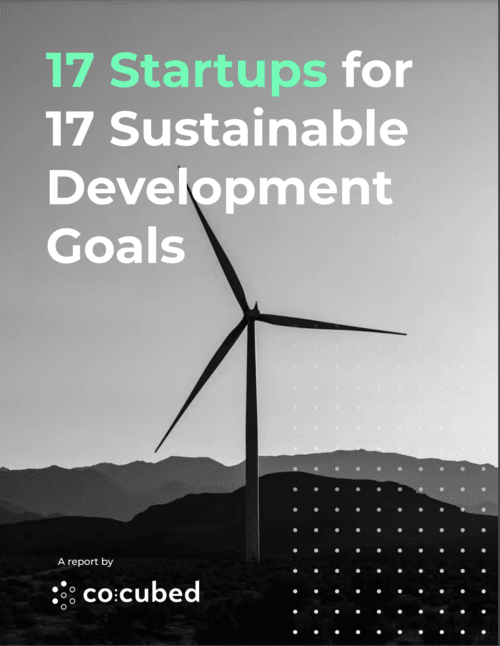By Aidan Lethem, Sustainability Expert at Co:cubed
Earth Day has come and gone. Again.
The leafy logos have been packed away. The hashtags have cooled. And the planet? Still heating up.
So what happens after Earth Day?
We get back to work.
Because for those of us in the business of climate solutions, Earth Day isn’t a destination — it’s a pit stop. A chance to pause, reflect, and recalibrate before diving back into the complex, messy, and (occasionally bonkers) work of fixing the future.
The tech exists. The talent exists. The urgency is deafening.
What’s missing? The connection.
Between corporates and climate-tech.
Between ambition and action.
Between the problem and the people actually solving it — often in co-working spaces, not corner offices.
That’s why I launched Portfolio 1.5°C —a series spotlighting bold, under-the-radar startups with the potential to move the needle. We started with soil (because, let’s face it, if the ground beneath our feet is crumbling, everything else is just decoration).
Startups like:
- Applied Carbon – Turning crop waste into biochar that locks carbon in the ground and boosts yields. A soil superhero.
- NouriSol – Breeding bacteria that literally help rebuild degraded soils.
- Quorum Bio – Developing microbial solutions to boost crop resilience and reduce chemical dependence.
- UNDO – Spreading basalt rock dust to speed up natural carbon capture. It’s basically reverse-ageing for the planet.
Soil might not be sexy, but it’s where regenerative innovation gets real. And there’s more to come — Water is next in the Portfolio 1.5°C pipeline.
Are the “extreme” climate solutions… actually the sensible ones now?
For decades, climate tech has been boxed into “realistic” vs “radical.” But we’ve hit 1.5°C. That line is blurring fast.
Ideas that once sounded like sci-fi — gene-edited crops, geoengineering, direct air capture — are now in pilot phases or on the cusp of scaling. Even nuclear’s having a quiet renaissance.
And in agriculture, things are really moving:
- Phytoform is using gene-editing to create crops that thrive in drought and suck CO₂ from the air.
- Raiz Vertical Farms (yes, I may be biased — it’s my own startup) is democratising sustainable food production with modular, urban-friendly systems.
These aren’t hypothetical moonshots. They’re live, investable, and deployable — today.
Less noise. More intros.
At Co:cubed, we’re not interested in just ‘surfacing startups’ or ticking a sustainability box. We exist to make the unlikely connections that actually get things moving.
We find the innovators who’ve slipped through the usual scouting nets.
We translate fuzzy ambitions into proper briefs.
And we ensure the spark doesn’t die after the first workshop or summit — even if your lead stakeholders are still OOO.
This isn’t about hope or hype. It’s about making sustainability operational. Real tech, real partnerships, real results.
So yes, Earth Day has passed.
But maybe that’s when the real work starts.
Let’s talk if you’re ready to go beyond the buzzwords — and actually do something about it. Email me at aidan.lethem@cocubed.com


